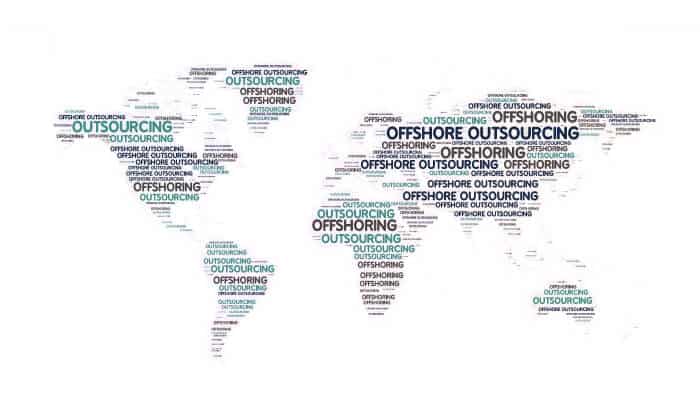In part one of this introductory series we discussed about what outsourcing, offshoring and offshore outsourcing are and defined the processes. In this second part of the series, we will take a look at the advantages of these three functions and see how they are similar or different to each other.
Let us start with outsourcing.
The advantage of outsourcing is that you are free of that work and in short don’t have to think about it really anymore. Besides, you get to enjoy tangible benefits like:
- Reduced cost of operations: When you outsource, you are essentially handing over the work to an external agency. This means unlike hiring in-house you don’t have to invest in training, research and development. The external agency already has its own experienced set of people and infrastructure.
- Better focus on core business: Outsourcing can help you to focus on your core strengths or competencies while you hand over the non-core tasks to an external agency. This means you can focus on brand building, research and development and other core areas.
- Access to better resources: You no longer need to invest in recruiting and training expensive resources for your business. Outsourcing widens your pool of resources and gives you access to a better quality for less.
- Advantage of time zone differences: If the place you outsource to has a different time zone, you could actually get work done 24×7 because while you close for the day, work starts in another time zone. It means that when you are back the next morning in your place, you find your work delivered to you.
Advantages of Offshoring
- Economies of Scale – When a company sets up office abroad, it gets comparative cost advantages on labor but also on other things like cost of land, infrastructure, rent, internet connectivity etc.
- Favorable Government Policies – Many governments across the globe grant exemptions and incentives to companies that set up businesses in their country thereby investing in their economy. Tax exemptions and access to cheap credit could improve the bottom-line of the business.
Advantages of Offshore Outsourcing
As pointed out in the previous article of this series, offshore outsourcing is simply outsourcing done outside your country. The advantages of this are as follows:
- Lower Costs – Since there is no cost of investment in infrastructure and they get the same or even better qualified professionals in the same price.
- Take advantage of vendor’s expertise – They get access to vendors who are specialized in their fields and take care of the fields outsourced to them. So for example if the core competency of your business isn’t HR or accounts , offshore outsourcing it to a vendor whose core competency is HR and accounts will help you to focus on your core strengths instead of wasting time and resources on it.
- Scalability – Because you are not in rigid contracts with a vendor, you can scale your resources up and down as per your requirements which again means reduced savings and better efficiency for your business.
These, in a nutshell, are the advantages of outsourcing, offshoring and offshore outsourcing. Choose the one that suits your business best. In the third part of this series, we will look at the history of the difference between how SMEs and MNCs offshore, outsource and offshore outsource.







